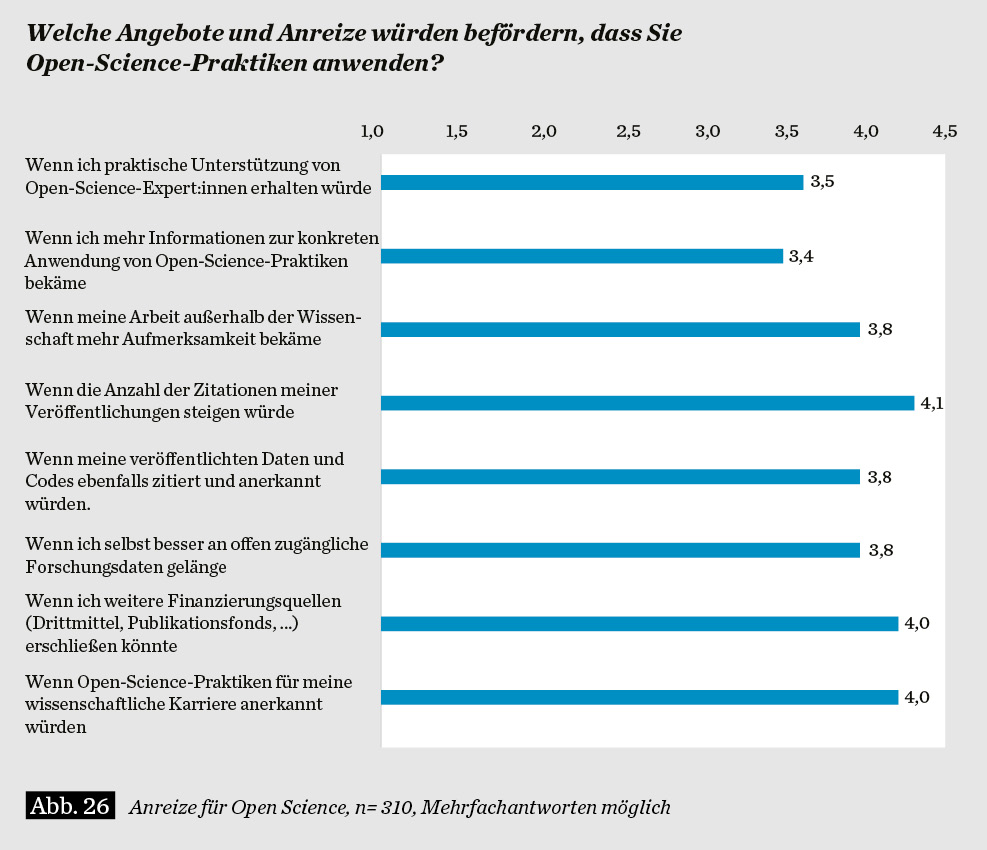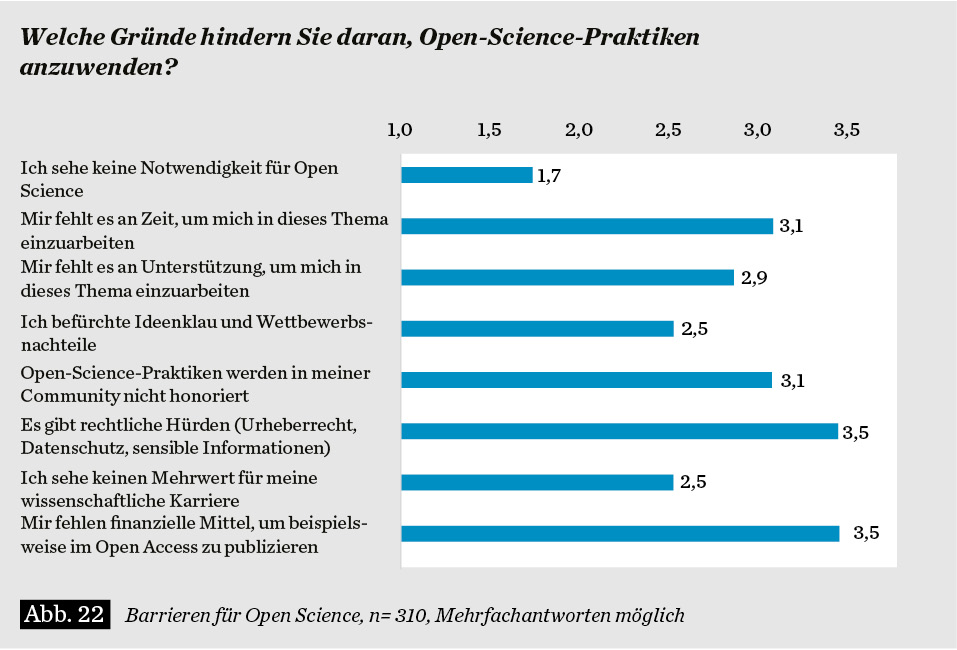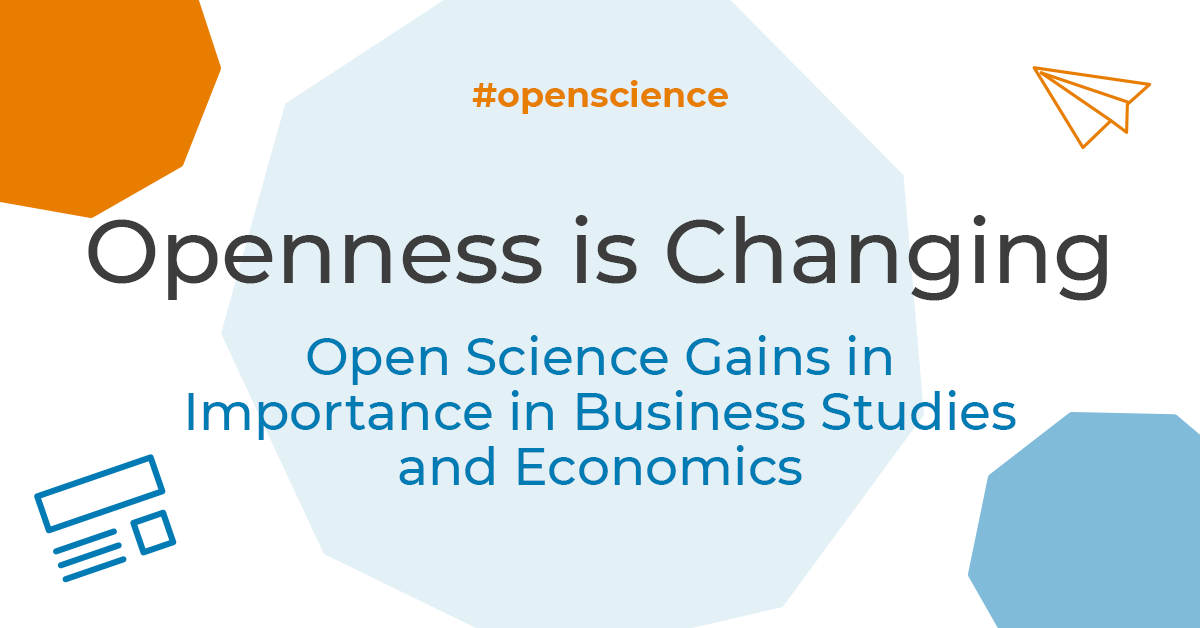The use of Open Science is becoming increasingly important in business studies and economics, but still faces numerous hurdles. This is shown in a study by the ZBW – Leibniz Information Centre for Economics, just published in October 2024. The results provide insights into the acceptance, application and obstacles of Open Science practices among business studies and economics researchers at German universities and research institutions.

According to the study, which is based on a survey of 314 participants, more and more researchers in business studies and economics are recognising the added value of Open Science for the transparency and reproducibility of their research.
The study also shows that there are significant differences between different types of institutions. The availability of data and codes alongside research articles plays an important role for many researchers. However, the use of open research data and the publication of their own data and codes is hampered by the high costs and potential competitive disadvantages. The study also shows that legal and financial barriers as well as a lack of time and recognition in the academic community hinder the full implementation of Open Science practices in business studies and economics.

This development is supported by institutional funding and strategic initiatives aimed at improving the visibility of and access to research results. Many researchers are already using platforms and repositories to share their data and publications openly. The study shows that Open Science is seen not just as a trend, but as an integral part of research practice – but only if the appropriate framework conditions are in place.
Barriers and challenges
Despite this positive development, there are still significant hurdles to the implementation of Open Science. The study identifies three central barriers:
- Legal uncertainties: Many researchers are unsure about the extent to which they are allowed to make their data openly accessible without violating copyright regulations or data protection guidelines. This often leads to valuable data not being published in the first place.
- Financial burdens: High publication charges (APCs) are a major challenge, especially for researchers at smaller institutions. Without sufficient financial support, the publication of Open Access articles remains difficult to realise for many.
- Lack of recognition: The publication of data and open research results is still given little consideration in scholarly career planning. There is a lack of incentives and visible added value that could promote open research practice.

These hurdles mean that Open Science is often only implemented selectively in business studies and economics. Although many researchers publish their results in Open Access journals, data and methodology are often not fully disclosed.
Need for action for the future
The results of the study highlight the need for targeted support and clear guidelines in order to further promote the acceptance and utilisation of Open Science in business studies and economics. In particular, the removal of legal and financial hurdles and the recognition of open research in scholarly career planning are key factors here.
The ZBW plans to use this knowledge to further expand its offerings and services in the area of Open Science, such as the Open Economics Guide. Measures are planned to strengthen the networking of researchers and to promote the Open Science community in business studies and economics.
The full report of the study "The importance of Open Science in Business Studies and Economics" is available for download on the ZBW's Open Access publication server EconStor.
